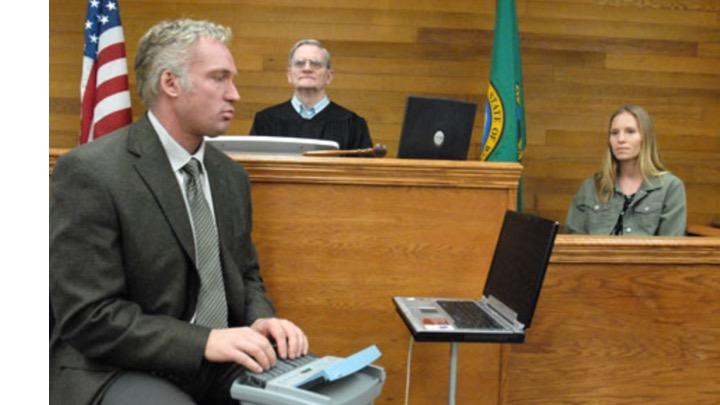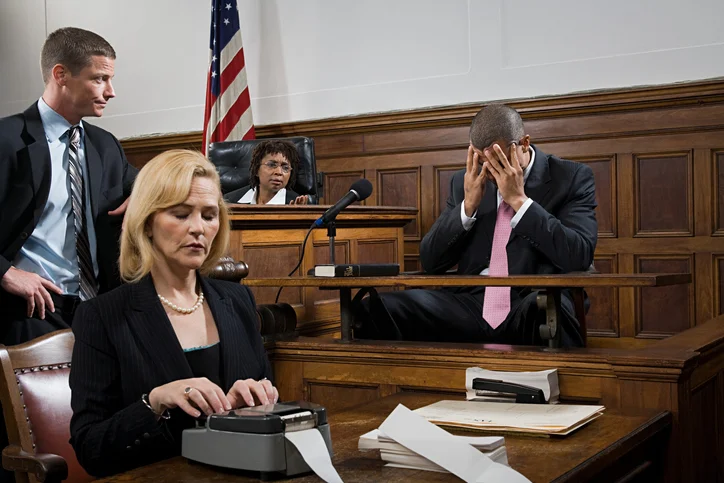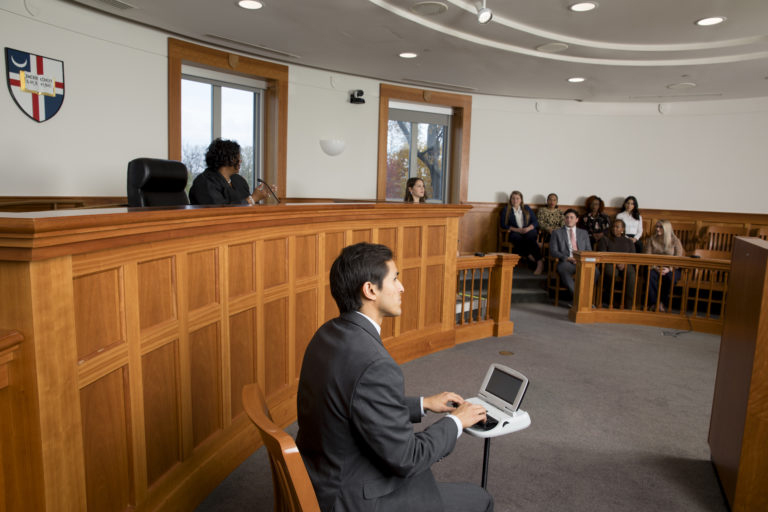Comprehending the Value of Court Coverage in Legal Solutions and Proceedings
Court coverage plays a pivotal role in the lawful landscape, working as the backbone of accurate documentation in various legal procedures. By providing verbatim transcripts, court press reporters ensure that every testimony and disagreement is meticulously recorded, consequently safeguarding the integrity of the judicial procedure. Past mere documentation, their work supports fairness and transparency, which are fundamental concepts of justice. The advancement of technology and the moral implications surrounding this profession raise important concerns concerning its future. What might these modifications indicate for the lawful system and its stakeholders?
Function of Court Reporters

In addition to transcription, stenotype reporter are usually entrusted with managing and maintaining the circulation of process. They have to be competent in legal terminology and possess a thorough understanding of courtroom protocols to make certain that the document reflects the context and subtleties of the dialogue. Their job may also prolong past conventional courts, encompassing administrative hearings, adjudications, and other legal settings where documentation is vital.
Moreover, court press reporters may provide real-time coverage, allowing prompt accessibility to records during process, which can be crucial for the effective administration of justice. By guaranteeing that a specific record is preserved, court press reporters support the stability of the legal process, offering and assisting in appeals as an essential resource for legal experts in their search of justice.
Importance of Accuracy

The duty of precision extends beyond plain transcription; it includes the capability to record the subtleties of speech, consisting of tone, focus, and non-verbal signs, which can be important in recognizing the context of statements made. An exact record makes certain that all celebrations included-- juries, attorneys, and courts-- have access to the same information, cultivating justness and openness in the judicial process.
Furthermore, accurate transcripts are crucial for the appellate process, where greater courts count on them to evaluate reduced court choices. Mistakes can threaten the result of an appeal, potentially impacting a party's liberties and civil liberties. Therefore, the dedication to precision in court reporting is not just an expert responsibility however a cornerstone of justice that supports the policy of law.
Types of Lawful Procedures
Covering a vast variety of lawful contexts, stenotype reporter are essential in different types of legal procedures, each calling for distinctive strategies and skills. Among one of the most usual kinds are civil lawsuits, criminal tests, and administrative hearings. In civil litigation, stenotype reporter catch testimonies, motions, and depositions, guaranteeing that every detail is documented accurately for possible charms or settlements.
In criminal trials, the function of court press reporters ends up being much more essential, as they record all facets of the process, including court selections, witness testaments, and punishing phases - Court Reporting. The accuracy and immediacy of these documents are extremely important, given the possible repercussions for defendants and the stability of the judicial system
Management hearings, frequently performed by governmental firms, also rely upon court press reporters to preserve main documents of process. These hearings can include disputes regarding regulative conformity, employment problems, or expert licensing, requiring specific documentation.
In addition, specialized process such as arbitration and arbitration require court reporters to capture the subtleties of settlements and contracts. Each sort of legal case provides unique challenges, highlighting the relevance of knowledgeable court press reporters in supporting the honesty of the legal process.
Technology in Court Coverage
Improvements in innovation have actually revolutionized the field of court reporting, improving both efficiency and precision in the transcription procedure. Conventional approaches of manual note-taking have actually been supplemented and, in some situations, changed by innovative digital devices that enhance process and boost accuracy (Court Reporting). Stenotype reporter now use advanced steno machines equipped with real-time transcription capabilities, enabling instant accessibility to a verbatim account of process
In addition, the combination of speech recognition software program has actually additionally changed the coverage landscape. This innovation enables the automatic transcription of spoken words, dramatically lowering the time needed for producing main records. Furthermore, cloud-based platforms assist in simple storage space and retrieval of records, making sure that lawful experts can access necessary papers from anywhere, at any kind of time.
Video conferencing devices have actually likewise emerged as important parts in remote depositions and hearings, helping court reporters catch procedures in real-time, no matter area. The mix of these technical developments not only boosts the accuracy of lawful documents yet additionally sustains an extra reliable and versatile lawful process. As the field continues to evolve, embracing these advancements will be vital in fulfilling the growing demands of the legal sector.
Honest Considerations in Reporting
The combination of technology in court reporting brings with it a collection of ethical considerations that specialists should navigate carefully. As stenotype reporter significantly utilize digital devices, concerns surrounding honesty, privacy, and accuracy concern the leading edge. Securing sensitive details is extremely important; press reporters need to guarantee that any electronic documents are firmly stored and redirected here shared only with accredited people.
Additionally, the accuracy of transcriptions is important. Using software application for real-time reporting does not absolve court reporters from the obligation of ensuring that the last product is precise. Ethical responsibilities determine that any errors must be quickly corrected and connected to pertinent parties.

Last but not least, compliance with lawful criteria and market regulations is vital. Court reporters must stay notified concerning developing honest standards to maintain the trust placed in them by the lawful system. By dealing with these moral factors to here are the findings consider, stenotype reporter can remain to supply indispensable solutions in lawful process while preserving public self-confidence.
Conclusion
Finally, court reporting plays an important duty in the legal system by making sure trustworthy and accurate documentation of judicial procedures. The thorough job of court press reporters maintains the stability of the legal process and sustains the rights of people involved. The integration of modern technology improves effectiveness while maintaining honest standards. Ultimately, the importance of court coverage can not be overstated, as it functions as a crucial structure for justness, openness, and the reliable management of justice.
Court coverage plays a pivotal role in the legal landscape, serving as the foundation of accurate documents in numerous lawful proceedings.Court reporters consistently play a vital duty in the judicial process by producing accurate, verbatim transcripts of lawful procedures.Additionally, precise records are essential for the appellate process, where higher courts depend on them to assess reduced court decisions.Treatment a wide array of legal contexts, court reporters are necessary in numerous kinds of lawful process, each calling for distinctive strategies and skills. By resolving these moral factors to consider, court reporters can proceed to provide very useful Website services in lawful process while keeping public self-confidence.
Comments on “Court Reporting Solutions for Depositions, Tests, and Hearings”